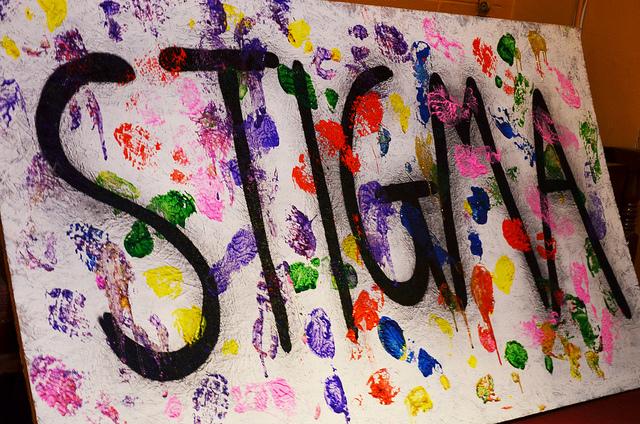Mental Health Month has come to a close. None too soon.
Newspapers will no longer be inundated by people voicing “the stigma of mental illness,” people from every corner of society, mental health professionals, mental health advocacies, editorial boards, reporters, editors, citizens, all bent on sending the message, “There is a stigma to mental illnesses,” and not one of them considerate of the effect of their message. Saying there is a “stigma” to mental illnesses helps no one and harms a great many, just as past uses of that term did.
President Barack Obama voiced that prejudice from his office. A president of color directed to minds the same prejudice presidents once visited upon people of color, a prejudice he himself chronicled as having experienced in his youth. He was imposed upon to do so by a committee of 10 invited to the White House by advisors, all holding that prejudice and presenting it as a normal reaction. He heeded their voice, rather than his own inner voice, which could have warned him, “I am being asked to lend my voice to a prejudice.”
On occasion, he may say it again, but the pressure of Mental Health Month to conform to that prejudice, to redundantly repeat it, rather than report people who direct it as one normally does with prejudices, will considerably diminish, not just for him, but for editors and reporters everywhere.
“Stigma” has but one purpose: To harm. The word “rape” harmed, similarly, for generations, until late in the 20th century, women, suddenly self-empowered, raised their voices and ended that “norm,” telling us we had done enough harm with it. We stopped. We educated ourselves to the reality, assault, and began addressing that. We crossed the street from pointing fingers to looking into a mirror and seeing ourselves.
And then we crossed back, redirecting that same prejudice, apparently unable to give it up. We, as before, swiftly learned to repeat it, teaching one another this new “acceptable” version. Universities accept it, even teach it. Though they offer students protection from myriad other prejudices, they offer no protection to students against whom it is voiced, assuring it will be carried into another generation.
What can we do to stop it? We can, as the president did not, recognize that we are being asked to participate in this prejudice, can listen to our inner voice and say, “No.” We can, instead of repeating it, confront it. We can directly address those who proffer it, just as we would do with racism. The next time someone says, “There is a stigma to mental illnesses,” ask them to precisely state their meaning. The words prejudice, discrimination, ignorance, lack of understanding, empathy and sympathy will likely appear. It is those we need to overcome. And to end on a positive note, we are.
We are learning that they are not “mental,” the realm of psychology, but illnesses without modifier, the realm of physicians. Intensive research is connecting them directly to the physical brain, and as research progresses, we will likely find answers to some. And with that our superstitions will, replaced by knowledge, diminish.
– Harold Maio is a retired mental health editor.
Photo courtesy Marie L., Creative Commons















